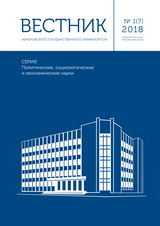Moskva, Russian Federation
The current research is based on the study of passports of state programs at the federal and regional levels related to the development of the Republic of Dagestan. The authors analyze the quality of regulatory, legal and methodological base of the state programs and compare them with the actual state of affairs. Quality problems are indicated by serious methodological flaws in the database, which prevent effective solutions of regional problems and lead to their conservation. As for the realities, it has been found that it is impossible to determine the contribution of programs to the achievement of declared goals and to assess the effectiveness of the executive bodies responsible for their implementation. The discrepancy between goals and results is due to the duplication of functions and the erosion of the responsibility of power structures, the lack of clarity in the movement of counter cash flows from the center to the regions and vice versa, the lack of coordination of various regional policy instruments aimed at solving strategic tasks and implementing program guidelines. The unresolved nature of such problems actualizes the need to create a multilevel coordination mechanism in order to pursue a strategically coordinated and balanced socio-economic policy in the region.
state program, coordination, strategic planning, development management, regional policy

















